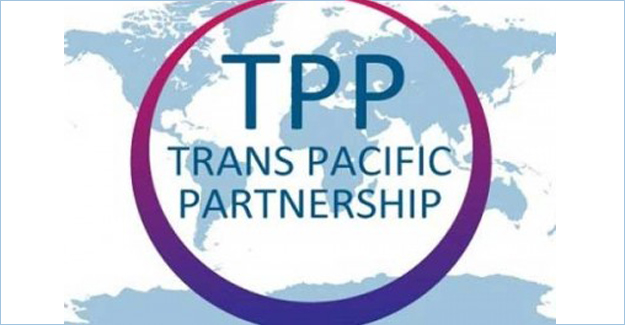
Moving Ahead And Beyond TPP
Singapore will push forward to ratify the Trans-Pacific Partnership, a change from other nations taking a wait and see approach after President Donald Trump withdrew the US from the trade agreement. While the effort may be mostly symbolic, it does signal to other TPP nations that Singapore is still open to the agreement without the United States. Singapore's Prime Minister said during a visit to TPP member nation Vietnam last week that "Singapore is proceeding with the ratification."
After Trump's move, Singapore's Ministry of Trade and Industry had said that it would be focusing on other regional trade initiatives as TPP cannot come into effect in its current state. A Singapore trade official says that ratifying TPP is an effort by the country to "study the new balance of benefits" with other TPP members. Singapore is interested in either bilateral deals with TPP member countries or implementing TPP without the United States.
Even as TPP signatories are working out strategies to move ahead with one of the most ambitious trade pacts, the US is working towards renewing its trade dialogues with some of its partners. At the recent Trade and Investment Framework Agreement (TIFA) meetings, US renewed trade dialogue with Vietnam, which was expected to be one of the largest beneficiaries of the TPP.
US, Vietnam to address bilateral trade issues
The US and Vietnam met on March 27-28 to discuss deepening trade ties between the two nations as well as address outstanding bilateral trade issues. The United States also used the meeting as an opportunity to reaffirm the Trump Administration's commitment to expanding ties with the Asia-Pacific region, including with Vietnam.
The United States urged Vietnam to promptly address bilateral issues, including related to agriculture and food safety, intellectual property, digital trade, financial services, customs, industrial goods, transparency and good governance, and illegal wildlife tracking. Vietnam also updated the US team on its plans to implement labour reforms. The two sides agreed to continue their dialogue on these issues and to launch working groups focused on resolving bilateral issues, starting with groups on agricultural and food safety issues, industrial goods, intellectual property matters, and digital trade.
They reviewed Vietnam's implementation of the WTO trade facilitation agreement, as well as Vietnam's participation in the WTO Information Technology Agreement expansion. In addition, the US and Vietnamese teams discussed how they could work together to advance their common interests in building US-ASEAN ties.
US, Laos hold inaugural meeting under TIFA
The US, Laos inaugural meeting under the US-Laos TIFA Joint Trade and Investment Committee, emphasised the Trump Administration's commitment to expanding ties with countries in the Asia-Pacific region, and the United States and Laos affirmed their interest in growing bilateral trade and investment between them, committing to continue work on outstanding bilateral issues.
The United States and Laos discussed the importance of expeditiously addressing key bilateral issues, including digital trade, agriculture and sanitary and phytosanitary standards, intellectual property, autos, investment, good governance, labour, and illegal logging and wildlife trafficking.
The United States and Laos reviewed Laos's implementation of its WTO accession commitments and the WTO trade facilitation agreement, as well as Laos's participation in the WTO Information Technology Agreement.
The United States and Laos signed a TIFA in February 2016. Two-way goods trade between the United States and Laos grew over five-fold in the past 10 years to US$ 86 million, with US exports up more than 25% in the last year. Two-way agricultural trade grew 19-fold in the same period to US$ 6 million.
US, Afghanistan meet
The US-Afghanistan TIFA Council met on March 27 and 28 in Kabul, Afghanistan. In effect since 2004, the TIFA Council is the premier US-Afghanistan dialogue dedicated to growing trade and investment relationship.
Over the course of the TIFA meeting, the two delegations discussed a wide array of trade & investment related topics, including:
1. A review of trade and investment trends in Afghanistan;
2. The status of key commercial legislation related to Afghanistan's accession to the World Trade Organization (WTO);
3. US assistance for the WTO implementation process;
4. Updates on intellectual property laws and opportunities to cooperate in customs enforcement and intellectual property awareness;
5. Trade facilitation, including the status of implementation of the Afghanistan-Pakistan Transit Trade Agreement (APTTA) and the International Road Union's Transportes Internationaux Routiers, or TIR Convention;
6. Government procurement procedures; ease of doing business concerns such as taxes, business licenses, contract sanctity and enforcement, insolvency, and corruption; and
7. Challenges, opportunities, and solutions in key sectors such as agriculture, infrastructure, and telecoms.
The US also presented an overview of the US Generalised System of Preferences (GSP) preferential market access programme, Afghanistan's current GSP utilisation, and opportunities for expanded use of this programme. Throughout these discussions, the need for inclusive growth - including recognition of the crucial role of women in growing trade and fostering economic growth as well as due regard for the rights of workers - was emphasised.
Both governments emphasised the central importance of growing Afghanistan's external trade and investment and, in this regard, the full and effective implementation of the 2010 Afghanistan-Pakistan Transit Trade Agreement (APTTA). The two governments also discussed the importance of fully implementing Afghanistan's Open Access policy in the telecoms sector and the need for a transparent and efficient tendering process for the extractives sector.
Afghanistan is currently the United States' 93rd largest goods trading partner with US$ 947 million in total (two-way) goods trade during 2016. US goods exports totaled US$ 913 million; goods imports from Afghanistan totaled US$ 34 million. The US goods trade surplus with Afghanistan was US$ 880 million in 2016.
Textile Excellence
If you wish to Subscribe to Textile Excellence Print Edition, kindly fill in the below form and we shall get back to you with details.












